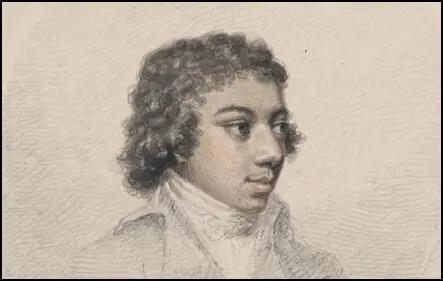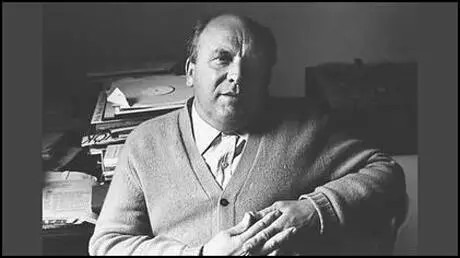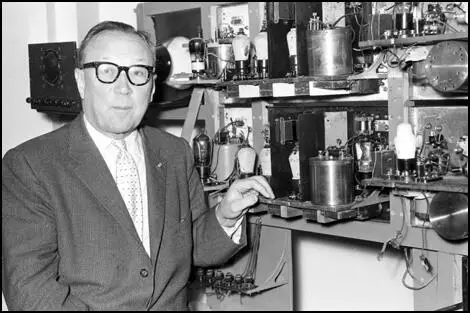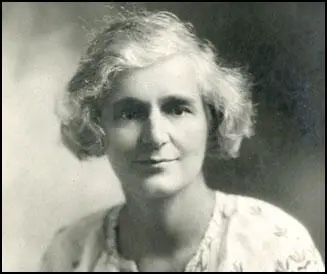On this day on 29th February
On this day in 1780 musician George Bridgetower was born in Biala, Poland. His father, Frederich Bridgetower came from Africa and his mother, Ann Bridgetower, from Germany.
As a young man Bridgetower showed extraordinary musical talent and made his professional debut in Paris at the age of nine when he played a violin concerto by the Italian composer Giovanni Giornovichi. The following year he moved to London.
The Prince of Wales (the future George IV) was very impressed with Bridgewater and paid his father £25 to become his guardian. The Prince of Wales employed leading musicians to teach Bridgewater musical theory. He also arranged for him to give concerts as a solo violinist at the Convent Garden, Drury Lane and Haymarket theatres. For the next 14 years Bridgewater held the post of first violinist in the Prince of Wales's private orchestra that performed at his home in London and at the Royal Pavilion.
In 1802 Bridgewater went on a concert tour of Germany and Austria. In May 1803 he met Ludwig von Beethoven who was immensely impressed by his abilities and described him as "a very able virtuoso and an absolute master of the instrument."
Bridgewater obtained a degree of Bachelor of Music at Cambridge University in June 1811. He composed very little work but continued to perform in Europe for many years.
George Bridgetower died in Peckham, London, on 20th February, 1860.

On this day in 1908 leading expert on folk music, Albert Lancaster Lloyd, was born in London. Lloyd's father worked as a docker, draper's assistant and poultry farmer before serving on the Western Front during the First World War. Badly wounded in the war he died while Lloyd was still a child. Lloyd became an orphan when his mother died of tuberculosis in 1923.
In 1924 Lloyd emigrated to Australia where he worked as a farm labourer in North South Wales. While working as seep shearer Lloyd became interested in folk music and began collecting songs sung by fellow workers. He later wrote: "My conscious interest in folk songs began then. I liked what my fellow station hands and shearers sang, and I kept exercise books for copying songs in."
After ten years in Australia he moved to South Africa before returning to England in 1934. Soon after arriving in London he met A. L. Morton. The two men became close friends and both became active members of the Communist Party.
Unable to find work Lloyd obtained a reader's ticket for the British Museum and spent him time researching Marxism and the history of the British folk song. This included reading Cecil Sharp's English Folksong and the eight volume The Journal of the Folksong Society (1899-1930). He was also deeply influenced by the work of A. L. Morton. This manuscript that was eventually published as the People's History of England.
In 1937 Lloyd moved to Liverpool and found work as a sailor on the whaler Southern Empress. After a seven month trip to the Antarctic he returned to London and in 1938 had his first radio script, The Voice of the Seamen, accepted by the BBC.
Lloyd, a staunch opponent of Adolf Hitler and his government in Germany, was commissioned in 1939 by the BBC to produce a series of programmes on the rise of Nazism. Co-written with the Russian historian Igor Vinogradoff, the Shadow of the Swastika had a major impact on public opinion. Lloyd also wrote articles on the subject for the Reynold's News and Picture Post.
Lloyd continued his interest in folk music and on 21st July 1939 he produced a radio programme for the BBC entitled Saturday Night at the Eel's Foot that featured the singing of Velvet Brightwell. Despite the success of the radio programmes, Lloyd did not have his contract renewed. It is generally believed this was because the BBC was unhappy with Lloyd's involvement with the Communist Party. He was now recruited by Tom Hopkinson to write articles for Picture Post. These were often produced in collaboration with the photographer Bert Hardy.
Lloyd's first book on folk music, The Singing Englishman, was published in 1944. His friend A. L. Morton wrote that the book had "a sparkle and spontaneity and a boldness of attack which make it a model for the application of Marxist ways of thinking to cultural questions. It looks squarely at folk song as music and poetry, the peak of the cultural achievement of the English lower classes."
After the Second World War Lloyd returned to the BBC and worked on the radio series Ballads and Blues. He also edited the Penguin Book of English Folk Songs and published Come All Ye Bold Miners (1952) and Folk Song in England (1967).
Lloyd recorded several records including The Iron Muse (1963), First Person (1966), Leviathan (1968) and The Great Australian Legend (1969).
Albert Lancaster Lloyd died in London on 29th September 1982.

On this day in 1935 Robert Watson-Watt demonstrates his radar system to Air Ministry. A few months earlier he had written a paper entitled The Detection of Aircraft by Radio Methods. This was presented to Henry Tizard, the chairman of the Committee for the Scientific Survey of Air Defence. Tizard was impressed with the idea and on 26th February 1935, Watson-Watt demonstrated his ideas at Daventry. As a result he was appointed head of the Bawdsey Research Station in Felixstowe.
Watson-Watt's was based on the idea of bouncing a radio wave against an object and measuring its travel to provide targeting information. It was called radar (radio detection and ranging).
By the outbreak of the Second World War in September 1939, Watson-Watt had designed and installed a chain of radar stations along the East and South coast of England. During the Battle of Britain these stations were able to detect enemy aircraft at any time of day and in any weather conditions.
Radar was also used by ships and aircraft during the war. Germany was using radar by 1940 but Japan never used it effectively. The United States had a good radar system and it was able to predict the attack on Pearl Harbor an hour before it happened.
Britain tended to have the best radar system during the early stages of the war and in 1940 the invention of the Magnetron cavity resonator enabled more centimetric waves to be transmitted. It also enabled more compact high-frequency sets to be used by aircraft in the Royal Air Force.
In 1941 the Royal Navy began employing the ASV-3 radar system that helped them locate and attack U-Boats. In December 1942, the RAF began using the Oboe navigational system. A control station in Britain broadcast a radar beam in the direction of the target, and another beam tracked an Oboe-equipped Pathfinder bomber. A person in the control station could then guide the aircraft directly to the target.

On this day in 1964 Dorothy Jewson died. Dorothy, the daughter of George Jewson, a wealthy coal merchant and Mary Jane Jarrold, was born in Norwich on 17th August, 1884.
Dorothy was educated at Cheltenham College and Girton College, Cambridge. She also went to Cambridge Training College and afterwards taught at Richmond School (1908-11) and in a board school in Norwich. With her brother, she carried out a large-scale investigation into poverty in the city. This was published as The Destitute of Norwich.
Jewson was involved with the Fabian Society while at Girton but later found the organisation too moderate and joined the Independent Labour Party. Jewson also became a member of the Women's Social and Political Union but there is no evidence that she took part in militant activities. As a pacifist Jewson was a strong opponent of Britain's involvement in the First World War.
In 1916 Mary Macarthur invited Jewson to become an organiser for the National Federation of Women's Workers (NFWW) where she worked closely with Margaret Bondfield. When the NFWW amalgamated with the National Union of General & Municipal Workers in 1921, Jewson worked for the newly formed women's section.
Jewson was active in the local Labour Party and in the 1923 General Election she was elected as the MP for Norwich. In her maiden speech, she advocated bringing down the voting age of women to twenty-one. After she was defeated in the 1924 General Election she was appointed to the National Council of the Independent Labour Party.
In the 1924 Jewson joined Dora Russell to form the Workers' Birth Control Group. Jewson was president and Russell, secretary of the organisation. Together they attempted to persuade the Labour Party to adopt the policy of government funded welfare centres to provide free birth-control advice. Worried about the impact this would have on potential Roman Catholic supporters, James Ramsay MacDonald argued strongly against it at the 1926 Party Conference and managed to have the proposal defeated.
Jewson was a member of Norwich City Council between 1927 and 1936. In later life, Jewson was active in the Society for Friends.


